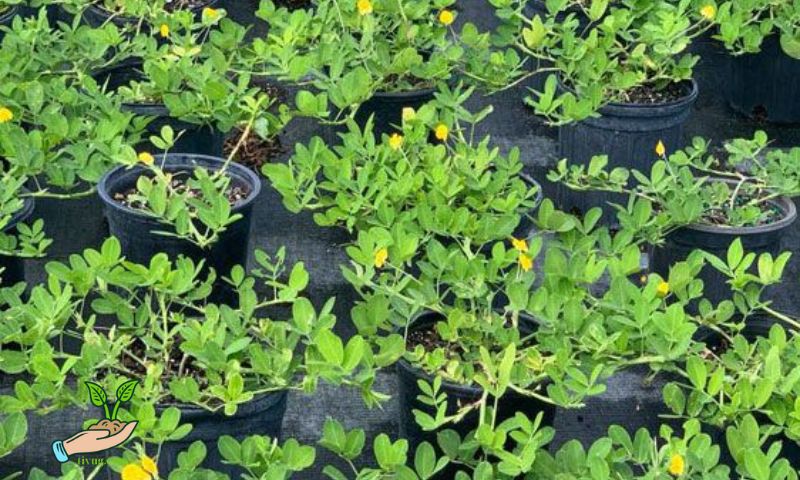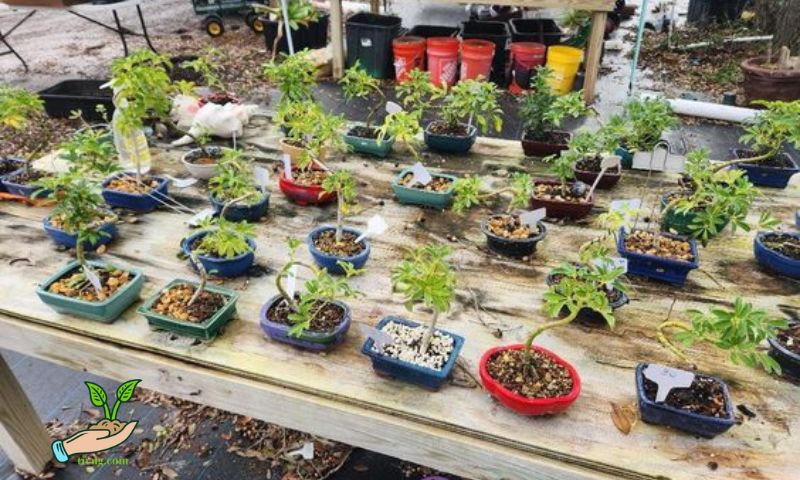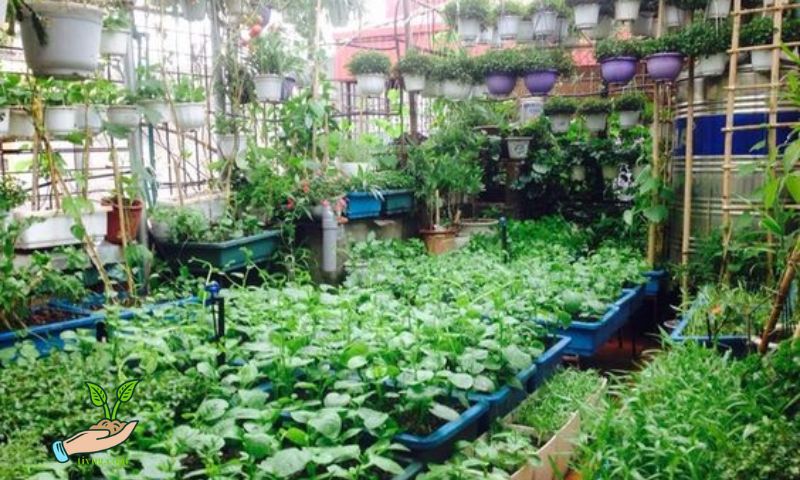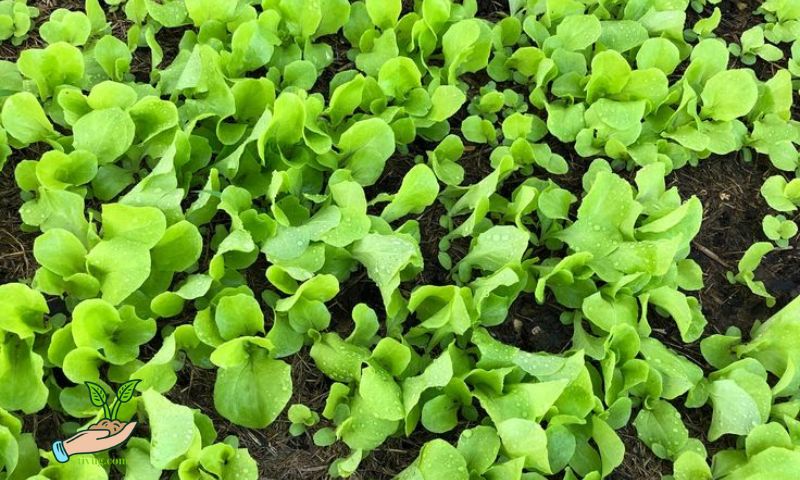Why You Should Build a Seedling Nursery? In modern agriculture and gardening, the role of seedling nurseries is paramount. These nurseries serve as hubs where seeds are nurtured into healthy young plants before being transplanted into fields or gardens. This article explores the compelling reasons why establishing a seedling nursery (vườn ươm cây giống) is not only beneficial but also crucial for sustainable agriculture and gardening practices.
Benefits of Seedling Nurseries

Seedling nurseries offer a multitude of benefits that extend beyond mere convenience. They play a pivotal role in enhancing efficiency, quality control, and environmental stewardship.
Cost Efficiency
One of the primary advantages of seedling nurseries is their contribution to cost efficiency in agriculture and gardening. By propagating seeds in controlled environments, farmers and gardeners can significantly reduce the costs associated with purchasing mature plants. This practice not only lowers initial investment but also minimizes the risk of crop failures due to diseases or pests, thereby ensuring long-term financial stability.
Quality Control
Maintaining quality control is essential in agriculture. Seedling nurseries provide a controlled environment where factors such as soil quality, water supply, and sunlight exposure can be optimized for each plant species. This meticulous care results in healthier plants that are more resilient to environmental stressors and more likely to thrive when transplanted into the field or garden.
Environmental Benefits
Beyond economic advantages, seedling nurseries contribute significantly to environmental conservation and sustainability.
Conservation of Biodiversity
Seedling nurseries play a crucial role in preserving biodiversity by propagating native and endangered plant species. By cultivating these plants in controlled settings, nurseries help prevent their extinction and support efforts to restore natural habitats. This conservation effort is vital for maintaining ecological balance and resilience in our ecosystems.
Reduction of Carbon Footprint
Local production in seedling nurseries reduces the carbon footprint associated with transporting plants over long distances. By growing plants closer to their intended planting sites, nurseries minimize greenhouse gas emissions and support sustainable practices in agriculture and gardening. This reduction in carbon footprint contributes to mitigating climate change impacts and promoting environmental sustainability.
Enhancing Crop Yields

The role of seedling nurseries extends to enhancing crop yields and ensuring food security through improved plant quality and availability.
Adaptability and Resilience
Seedling nurseries allow farmers and gardeners to grow plants that are better adapted to local climate and soil conditions. This adaptability ensures that crops are more resilient to fluctuations in weather patterns and less susceptible to diseases or pests. By selecting and propagating resilient plant varieties, nurseries contribute to sustainable agricultural practices and enhance overall crop productivity.
Timely Availability
A key benefit of seedling nurseries is their ability to provide timely availability of plants during planting seasons. By starting seeds early and nurturing them in optimal conditions, nurseries ensure that farmers and gardeners have access to healthy plants precisely when they are needed. This timely availability supports efficient agricultural operations and meets market demands effectively.
Community and Social Impact

Seedling nurseries not only benefit the environment and agricultural productivity but also have positive impacts on communities and society as a whole.
Supporting Local Agriculture
By establishing seedling nurseries, communities undertake a crucial step towards supporting local agriculture and empowering small-scale farmers and gardeners. Access to locally grown plants not only enhances food security but also promotes self-sufficiency among communities. When farmers and gardeners have reliable access to locally propagated plants from seedling nurseries, they are less vulnerable to fluctuations in market prices and external supply chains. This localized approach strengthens local economies by keeping financial resources circulating within the community, fostering economic resilience against external economic pressures.
Moreover, supporting local agriculture through seedling nurseries reduces dependence on external sources for plant materials. Communities can reduce their reliance on distant suppliers, thereby mitigating risks associated with transport disruptions, price volatility, and quality inconsistencies. By nurturing a self-sustaining supply of plants locally, communities enhance their ability to respond to local needs promptly and efficiently.
Furthermore, the establishment of seedling nurseries fosters community resilience by nurturing a sense of collective responsibility toward sustainable agriculture and environmental stewardship. Local farmers and gardeners, supported by accessible seedling nurseries, can engage in practices that preserve soil health, conserve water resources, and minimize chemical inputs. These practices not only safeguard the environment but also ensure the long-term viability of agricultural production within the community.
Educational Opportunities
Seedling nurseries provide valuable educational opportunities for teaching sustainable farming practices and environmental stewardship. Through outreach programs and community engagement, nurseries educate the public about the importance of biodiversity conservation and sustainable agriculture. These educational efforts empower individuals to make informed decisions about their food choices and gardening practices, contributing to a more environmentally conscious society.
Conclusion
In conclusion, the establishment of a seedling nursery (vườn ươm cây giống) offers numerous benefits that are essential for sustainable agriculture, environmental conservation, and community resilience. From cost efficiency and quality control to biodiversity conservation and educational outreach, seedling nurseries play a critical role in promoting responsible stewardship of our natural resources. As we look to the future of agriculture and gardening, investing in seedling nurseries emerges not only as a practical choice but also as a necessary step towards building resilient and sustainable communities worldwide.
Consider starting your own seedling nursery today and contribute to a greener, healthier planet for future generations.

